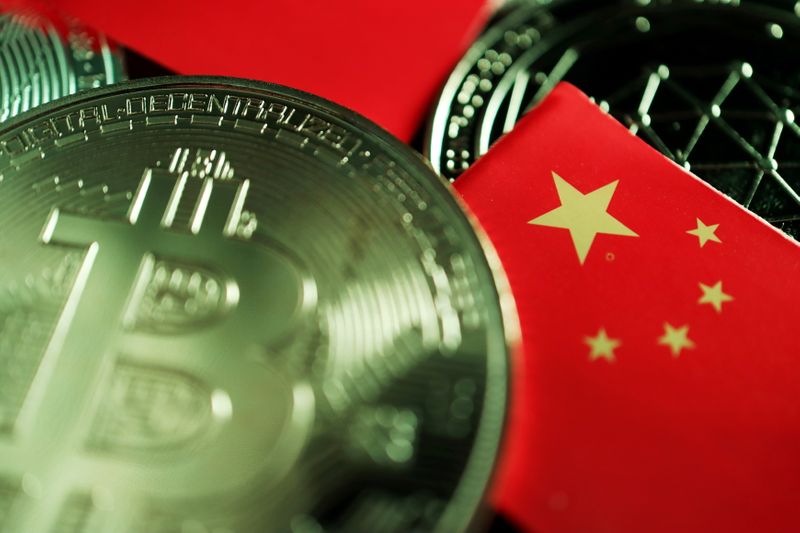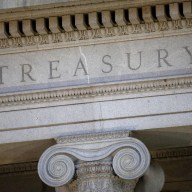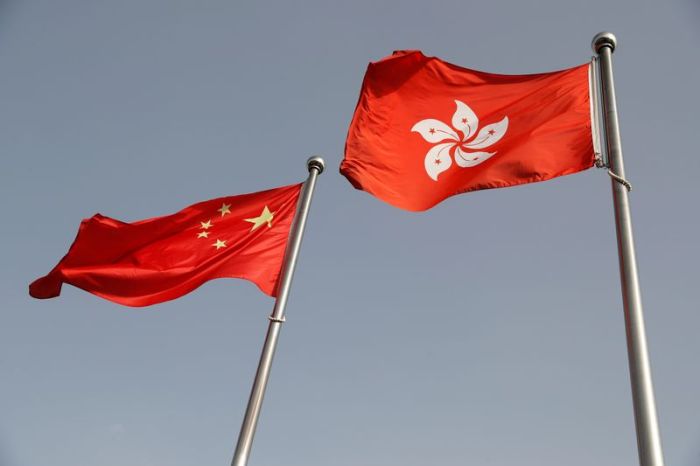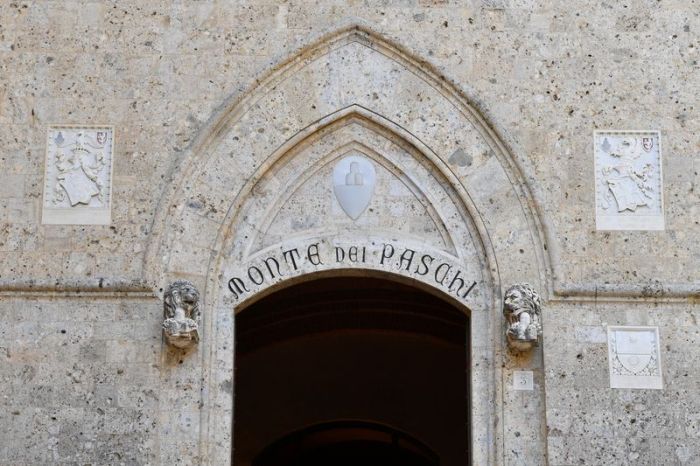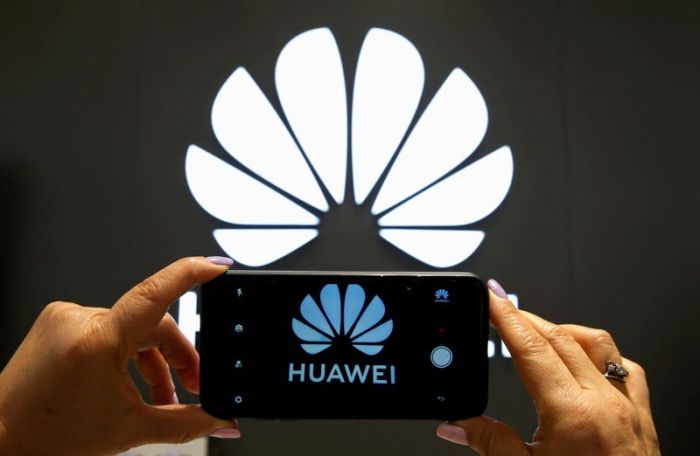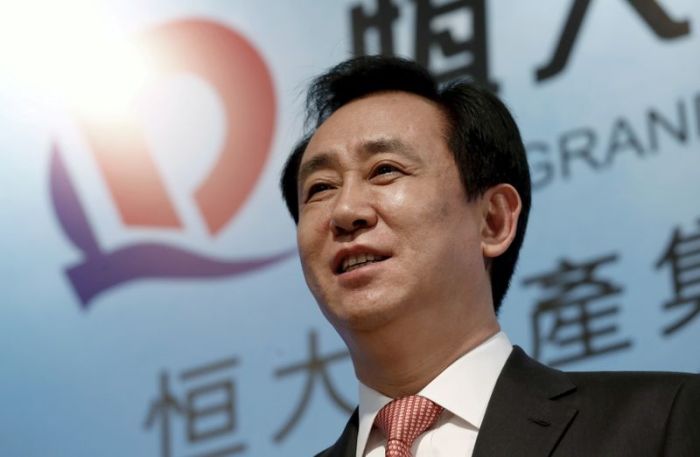SHANGHAI/LONDON (Reuters) – China’s most powerful regulators on Friday intensified a crackdown on cryptocurrencies with a blanket ban on all crypto transactions and mining, hitting bitcoin and other major coins and pressuring crypto and blockchain-related stocks.
Ten agencies, including the central bank, financial, securities and foreign exchange regulators, vowed to work together to root out “illegal” cryptocurrency activity, the first time the Beijing-based regulators have joined forces to explicitly ban all cryptocurrency-related activity.
See Explainer here https://www.reuters.com/article/crypto-currency-china-explainer/explainer-whats-new-in-chinas-crackdown-on-crypto-idUSKBN2GK1FO
China in May banned financial institutions and payment companies from providing services related to cryptocurrency transactions, and issued similar bans in 2013 and 2017.
The repeated prohibitions highlight the challenge of closing loopholes and identifying bitcoin-related transactions, though banks and payment firms say they support the effort.
Friday’s statement is the most detailed and expansive yet from the country’s main regulators, underscoring Beijing’s commitment to suffocating the Chinese crypto market.
“In the history of crypto market regulation in China, this is the most direct, most comprehensive regulatory framework involving the largest number of ministries,” said Winston Ma, NYU Law School adjunct professor.
The move comes amid a global cryptocurrency crackdown as governments from Asia to the United States fret that privately operated highly volatile digital currencies could undermine their control of the financial and monetary systems, increase systemic risk, promote financial crime and hurt investors.
They also worry that “mining,” the energy-intensive computing process through which bitcoin and other tokens are created, is hurting global environmental goals.
Chinese government agencies have repeatedly raised concerns that cryptocurrency speculation could disrupt the country’s economic and financial order, one of Beijing’s top priorities.
Analysts say China also sees cryptocurrencies as a threat to its sovereign digital-yuan, which is at an advanced pilot stage.
“Beijing is so hostile to economic freedom they cannot even tolerate their people participating in what is arguably the most exciting innovation in finance in decades,” top U.S. Republican Senator Pat Toomey tweeted.
While U.S. regulators are closely scrutinizing digital asset risks, they have said they also offer opportunities, including to promote financial inclusion.
‘SOCIAL ORDER’
The People’s Bank of China (PBOC) said cryptocurrencies must not circulate and that overseas exchanges are barred from providing services to China-based investors. It also barred financial institutions, payment companies and internet firms from facilitating cryptocurrency trading nationally.
The government will “resolutely clamp down on virtual currency speculation … to safeguard people’s properties and maintain economic, financial and social order”, the PBOC said.
China’s National Development and Reform Commission said it will work to cut off financial support and electricity supply for mining, which it said spawns risks and hampers carbon neutrality goals.
Bitcoin, the world’s largest cryptocurrency, dropped more than 9% before paring those losses. It was down 6.6% at $41,937 around 12:00ET. Smaller coins, which typically mimic bitcoin, also tumbled.
China’s cabinet vowed in May to crack down on bitcoin mining and trading as it sought to mitigate financial risks, without going into details, sending bitcoin tumbling 30% in a day. Friday’s news dashed hopes among crypto-enthusiasts that the cabinet would fail to follow through on its threat.
“This is the manifestation of the crypto mining and trading crackdown announcement … back in May,” said NYU’s Ma.
BOUNCE BACK?
The move also hit cryptocurrency and blockchain-related shares, although they clawed back some of those declines in morning U.S. trading.
U.S.-listed miners Riot Blockchain, Marathon Digital and Bit Digital slipped between 2.5% and 5%, while San Francisco crypto exchange Coinbase Global fell just over 1%.
Despite the initial shock, analysts said they did not expect the crackdown to dent global crypto-asset prices long term as companies continue to adopt crypto products and services.
The exposure of major crypto exchanges and payment companies was not immediately clear, however. Binance, the world’s biggest, has been blocked in China since 2017, a spokesperson said. A spokesperson for Coinbase declined to comment. Global payment company PayPal does not offer crypto services in China, a spokesperson said.
Crypto exchanges OKEx and Huobi, which originated in China but are now based overseas, are likely to be the worst affected since they still have some China users, analysts said. Tokens associated with the two exchanges plunged over 20%. The exchanges did not immediately respond to requests for comment.
However, the Chinese government has struggled in the past to stop internet users from evading its controls.
“China’s actions haven’t held back crypto’s rise too much in the past so I wouldn’t be surprised to see it bounce back once more,” wrote Craig Erlam, an analyst at currency broker OANDA.
Virtual currency mining had been big business in China before May, accounting for more than half the world’s crypto supply, but miners have been moving overseas.
“The losers in all of this are plainly the Chinese,” said Christopher Bendiksen, head of research at digital asset manager CoinShares. “They will now lose around $6 billion worth of annual mining revenue, all of which will flow to the remaining global mining regions,” he added, citing Kazakhstan, Russia and the United States.
(Reporting by SHANGHAI newsroom; Alun John in Hong Kong and Tom Wilson in London; additional reporting by Krystal Hu in New York; writing by Michelle Price in Washington; editing by Nick Macfie, Carmel Crimmins, Emelia Sithole-Matarise and Giles Elgood)

